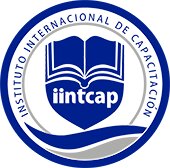Best Project Finance Lawyers in Santiago de los Caballeros
Share your needs with us, get contacted by law firms.
Free. Takes 2 min.
List of the best lawyers in Santiago de los Caballeros, Dominican Republic
About Project Finance Law in Santiago de los Caballeros, Dominican Republic
Project finance in Santiago de los Caballeros, Dominican Republic, refers to the legal and financial structuring of long-term infrastructure and industrial projects using a non-recourse or limited recourse financial structure. This means that repayment is secured by the project's future cash flow rather than the sponsors' balance sheets. Project finance is commonly used in sectors such as energy, real estate, transportation, and telecommunications within Santiago, the country’s second-largest city and a growing financial and commercial hub.
The Dominican Republic offers a favorable legal and regulatory environment for project finance, with local and international investors increasingly active in the market. Legal frameworks, government programs, and international treaties play a significant role in the success of project finance deals throughout the region.
Why You May Need a Lawyer
Project finance transactions are complex and involve numerous legal considerations. Common situations where you may need legal advice include:
- Structuring complex multi-party agreements or joint ventures
- Securing project permits, licenses, and environmental approvals
- Navigating local and international lending regulations
- Managing risks related to currency, construction, or operation
- Negotiating loan and security agreements
- Ensuring compliance with public-private partnership (PPP) regulations
- Dealing with cross-border transactions and foreign investment rules
- Resolving disputes or litigation arising from project implementation
Having a specialized project finance lawyer helps you understand the legal implications, minimize risks, and ensure compliance with all applicable regulations, safeguarding your investments and interests in Santiago de los Caballeros.
Local Laws Overview
Several Dominican laws and regulations directly affect project finance operations in Santiago de los Caballeros:
- Commercial Code and Civil Code - Define contract formation, enforceability, and liability for parties involved in project finance
- Securities Market Law - Governs fundraising through public offerings and regulates institutional investors and lenders
- Public-Private Partnership Law - Establishes rules for private investment in public infrastructure, important for PPP projects
- Foreign Investment Law - Guarantees the rights of foreign investors and sets out processes for investment registration
- Environmental Laws - Require thorough environmental impact assessments and ongoing compliance for eligible projects
- Taxation Laws - Outline applicable taxes, incentives, and exemptions for investment projects
- Collateral and Security Interests - The Dominican legal system allows asset pledges and mortgage registration essential for securing project loans
Legal processes can involve several governmental entities, including local municipalities in Santiago, the Ministry of Finance, and the National Commission of Public-Private Alliances. Understanding the local context and procedures is vital to move projects forward effectively.
Frequently Asked Questions
What is project finance and how does it work in Santiago de los Caballeros?
Project finance is a way of funding large projects where the repayment relies on the future cash flows of the project itself, not the creditworthiness of the sponsors. It often involves multiple stakeholders, such as banks, investors, and government entities, each with specific roles and legal responsibilities.
Are there any restrictions on foreign investors in project finance projects?
Generally, the Dominican Republic encourages foreign investment and provides legal protection and incentives for foreign investors. However, some sectors may require additional approvals or joint venture arrangements with local partners.
What types of projects commonly use this financing method in Santiago?
Typical sectors include energy generation (especially renewables), infrastructure developments like roads and ports, real estate, tourism, water treatment facilities, and telecommunications.
What permits and approvals are needed to start a project finance transaction?
Depending on the project's nature, you may need construction permits, environmental licenses, municipal approvals, and registration with relevant authorities such as the National Commission of Public-Private Alliances.
How is risk allocated among the parties in project finance deals?
Contracts in project finance are structured to allocate risks, such as construction, operation, market, and legal risks, to the parties best able to manage them. Proper legal advice is essential to ensure fair risk distribution.
What securities can lenders request to protect their investment?
Common securities include mortgages over physical assets, pledges of project contracts, bank guarantees, and assignment of project revenues. Dominican law supports various security interests to safeguard lenders.
Are there incentives or tax breaks for project finance investments?
Yes, the Dominican Republic offers several incentives for sectors like energy, tourism, and free zone manufacturing, such as tax exemptions, accelerated depreciation, and import duty benefits, depending on the project type and location.
What are the key stages of a project finance transaction?
The main stages include project identification and feasibility, securing funding and permits, negotiating contracts, financial closing, construction, and ultimately, operation and maintenance.
How long does it take to complete a project finance deal in Santiago?
Timeframes vary by project size and sector, but from feasibility to financial closing can typically take six months to two years, especially for larger infrastructure projects.
What happens if a dispute arises during the project?
Disputes are usually resolved first through negotiation or mediation, but contract terms may require arbitration or litigation before Dominican courts. Having clear dispute resolution provisions in contracts is crucial.
Additional Resources
If you are seeking information or support regarding project finance in Santiago de los Caballeros, consider consulting the following resources:
- Ministry of Finance (Ministerio de Hacienda) - For regulations and permits related to financial structuring
- National Commission of Public-Private Alliances (Comisión Nacional de Alianzas Público-Privadas) - The main authority for PPP projects
- ProDominicana (Centro de Exportación e Inversión de la República Dominicana) - Supports foreign investment information
- Local municipalities in Santiago de los Caballeros - For construction and operation permits
- Chamber of Commerce and Production of Santiago - Offers networking and advisory resources for businesses and investors
- Dominican Association of Investment Companies - For industry-specific guidance
Next Steps
If you need guidance or are considering engaging in a project finance transaction in Santiago de los Caballeros, follow these steps:
- Define your project’s scope, stakeholders, and financial needs
- Consult a qualified project finance lawyer familiar with local laws and industry practices
- Request a legal audit of your project design, contracts, and compliance requirements
- Engage with the relevant governmental authorities and secure all necessary permits
- Negotiate contractual terms with all involved parties and ensure all risks are properly addressed
- Arrange for ongoing legal oversight throughout construction and operation to address issues promptly
Legal assistance is key to navigating the complexities of project finance in Santiago de los Caballeros. Start by seeking a reputable legal professional who can provide tailored advice for your specific needs.
Lawzana helps you find the best lawyers and law firms in Santiago de los Caballeros through a curated and pre-screened list of qualified legal professionals. Our platform offers rankings and detailed profiles of attorneys and law firms, allowing you to compare based on practice areas, including Project Finance, experience, and client feedback.
Each profile includes a description of the firm's areas of practice, client reviews, team members and partners, year of establishment, spoken languages, office locations, contact information, social media presence, and any published articles or resources. Most firms on our platform speak English and are experienced in both local and international legal matters.
Get a quote from top-rated law firms in Santiago de los Caballeros, Dominican Republic — quickly, securely, and without unnecessary hassle.
Disclaimer:
The information provided on this page is for general informational purposes only and does not constitute legal advice. While we strive to ensure the accuracy and relevance of the content, legal information may change over time, and interpretations of the law can vary. You should always consult with a qualified legal professional for advice specific to your situation.
We disclaim all liability for actions taken or not taken based on the content of this page. If you believe any information is incorrect or outdated, please contact us, and we will review and update it where appropriate.













